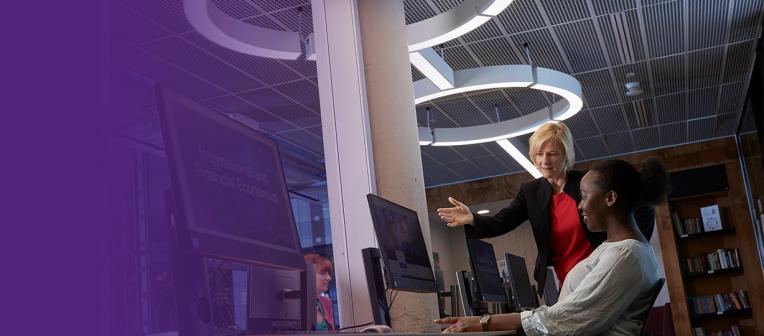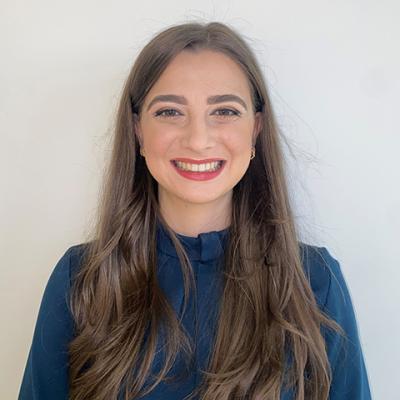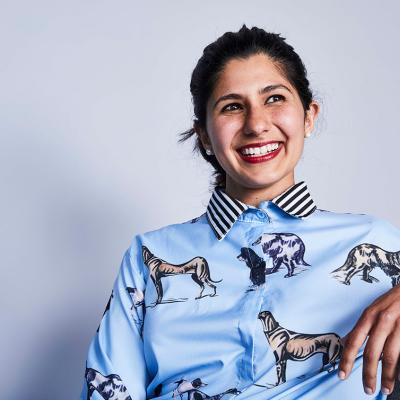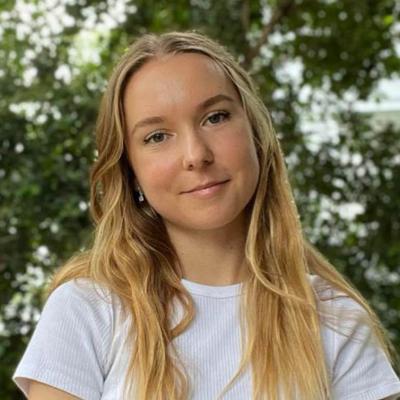Nearly every aspect of modern life is influenced, directly or indirectly, by the advice and insights of an economist.
By applying economic principles, models and tools, economists provide valuable insights to policymakers, businesses and society. They help inform decisions and shape effective strategies for mitigating and adapting to climate change.
Mai Nguyen and Isabella Sciacca have combined their passion for economics and desire to help build a more sustainable society into rewarding careers as consultants.
Mai’s story
Mai Nguyen studied a Bachelor of Economics (Honours) at UQ. Now, she's a manager at Deloitte Access Economics in Brisbane. During her career, she has conducted economic analyses to deliver evidence-based advice to the Australian Government, industry peak bodies and not-for-profit organisations.
Her work has contributed to public debate, helped shape Australian policies and informed investments in the areas of environmental management, climate resilience, innovation and economic development.
Mai believes the range of careers for economics graduates are far more diverse and surprising than most people expect.
“There are a lot of conventional career pathways, like working for the Reserve Bank of Australia. Here, you'd help manage inflation and the economy through monetary policy," she says.
"Or you can work for the Treasury and help guide fiscal policy."
“But there are so many other professions where economists can make meaningful contributions and use their knowledge and skills to build a better and more sustainable society.”
She believes economists can play a central role in addressing climate change and ensuring an equitable transition to a low-carbon economy.
“Economics is essentially the study of decision-making,” Mai says.
“Whether you're a politician, regulator, business leader or individual, everyone has to make decisions about where we invest our time, efforts and capital resources.
“Tackling climate change is a great example. The government needs to decide on our climate pathway, including how much we should reduce emissions and by when. They need to decide which technologies and industries we should support, and how we manage a fair transition.”
Isabella’s story
Isabella is an economist at Deloitte Access Economics. She has a passion for sustainability and climate change and has worked on the topic in Queensland and internationally.
Before joining Deloitte Access Economics, Isabella worked for Queensland’s State Government and the International Trade Centre, a joint agency of the United Nations and the World Trade Organization in Geneva, Switzerland.
Isabella graduated from UQ with a Bachelor of Economics / Bachelor of Commerce. She was recognised as a Class of 2020 UQ Future Leader and was awarded the UQ Employability Award.
“I’ve always been interested in international diplomacy and the geopolitical events happening on the news. I was curious as to how I could combine that with economics,” she says.
As a consultant, Isabella is particularly excited about working with clients on issues around climate change and achieving net zero emissions.
“One aspect of economics that I'm passionate about is how we can reduce emissions while ensuring we continue to have a growing, sustainable economy,” she says.
“It is one of the many areas where the fundamental skills of an economist, such as scenario modelling and policy analysis, can help inform decision-making. We can use models to understand different emissions scenarios and their impact on the economy.
“What will the economy look like if we don’t cut emissions and avert the worst impacts of climate change? How will economic growth be affected? How many jobs will be available in the economy in such a scenario?”
“It's through asking these sorts of questions that we realise the story is multifaceted. We need to use evidence-based analysis to help solve climate change and create an economy that will continue to function, grow and provide a good quality of life for everyone.”
How can economists help address the economic consequences of climate change?
Here are 6 key ways economists play a crucial role in addressing the economic consequences of climate change:

Isabella outside the United Nations in Geneva, Switzerland
What’s it like to work as an economist?
Climate change is just one area economists can influence debate and inform policy decisions to build a better society. Multiple other opportunities for someone with an economics degree to combine their learned skills with their passion exist.
Regardless of the career path you take, the day-to-day work of most economists will be similar. You'll analyse particular scenarios and provide recommendations and insights to decision-makers so they can make better decisions.
Mai says working for a major international consulting firm like Deloitte presents opportunities to learn new things every day.
“We complete a lot of reports for clients. We always start with a lot of reading to build our understanding of the sector, industry or issue we are looking into," she says.
“Ten years ago, I walked into one of my first courses as a fresh, first-year student at UQ. I expected to learn about supply, demand, markets and all the things people usually associate with economics.
“Instead, I learnt a lot about statistics, means and medians, and the other tools that economists use every day. They have become my toolkit.
“These days, I spend a lot of time reading, learning about issues, collecting data or doing consultations. Then, I combine all that information into models to analyse and come up with answers to the question.
“That is not where our role as economists ends. For people to make meaningful, informed decisions, we need to communicate why we have come to the conclusions we have come to. So, writing reports, creating infographics and giving presentations are integral parts of our jobs as economists as well.”
Understanding economics is useful in many industries and applicable to any topic you’re passionate about. Discover where a UQ Bachelor of Economics could take you.







